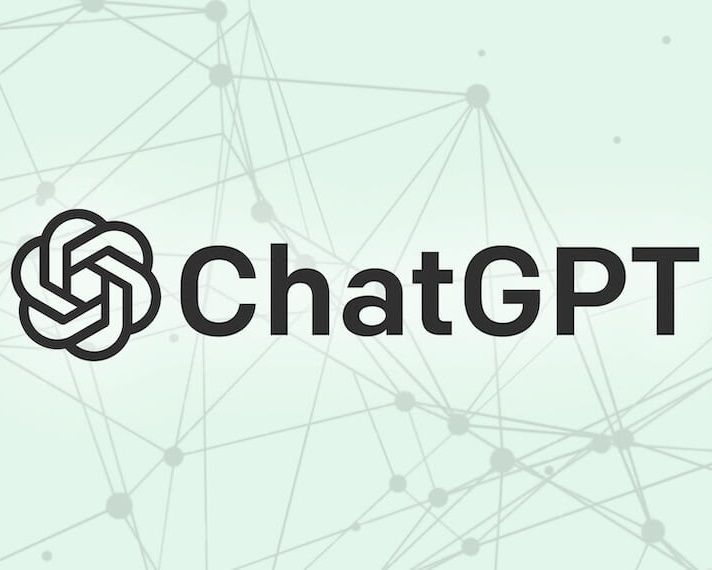
When businesses utilize ChatGPT in a business context, they are confronted with significant privacy concerns. One of the primary worries revolves around the potential sharing of Personally Identifiable Information (PII). The process of inputting customer queries into ChatGPT to receive personalized responses quickly involves transmitting personal customer details, such as names, addresses, and phone numbers, to OpenAI.
While ChatGPT streamlines email drafting, it also exposes PII to a third party, posing risks of compliance violations and compromising customer privacy and confidentiality. This exposure increases the likelihood of data breaches and unauthorized access.
Another critical privacy concern relates to safeguarding business secrets. Uploading sensitive code or proprietary information to ChatGPT by employees carries the risk of unintended disclosure. As a generative AI model, ChatGPT learns from user inputs and may inadvertently include proprietary data in its generated responses. This can result in harm to a company's competitive advantage, compromise intellectual property, or violate confidentiality agreements.
Businesses using ChatGPT face compliance risks associated with various data protection laws, including the General Data Protection Regulation (GDPR), Health Insurance Portability and Accountability Act (HIPAA), Payment Card Industry Data Security Standard (PCI DSS), and Consumer Privacy Protection Act (CPPA). These laws often require explicit user consent for the collection and use of personal data. By utilizing ChatGPT and sharing personal information with OpenAI, businesses surrender control over how that data is stored and used. This lack of control heightens the risk of non-compliance with consent requirements and exposes businesses to regulatory penalties and legal consequences.
Data subjects also possess the right to request the erasure of their personal data under the "right to be forgotten" principle of the GDPR. Without proper safeguards in place, businesses using ChatGPT lose control over the information and lack mechanisms to promptly respond to such requests and delete associated personal data. Failure to comply with these requests can lead to non-compliance issues and potential fines.
Furthermore, businesses must consider the security risks associated with using ChatGPT. Incidents like the bug that exposed ChatGPT users' chat history highlight the significance of data security and its impact on compliance. Data breaches not only compromise the confidentiality and integrity of personal data but also result in severe compliance violations and reputational damage.
To ensure businesses use ChatGPT in a manner that respects customer privacy and aligns with data protection laws, several steps can be taken. Comprehensive employee training on data privacy becomes essential. Obtaining explicit customer consent before collecting PII for use with ChatGPT is crucial, including providing clear information to customers about the purpose of data collection, its use, and any involvement of third parties. Implementing accurate data minimization measures, such as anonymization or removal of unnecessary PII before processing it with ChatGPT, helps safeguard customer privacy and reduces compliance risks. Regularly reviewing and updating data protection policies to address the use of AI models like ChatGPT ensures alignment with evolving privacy regulations and best practices.
Obtaining customer consent before collecting their PII and utilizing it with ChatGPT is of utmost importance for businesses. Failure to comply with data protection regulations, such as the GDPR, can result in substantial fines and reputational damage. Additional requirements include respecting the right to be forgotten and practicing data minimization by removing unnecessary PII. Pseudonymization or anonymization techniques can also aid in protecting privacy by replacing identifying information with placeholders or synthetic data.
The use of a synthetic PII generator contributes to data privacy when using ChatGPT by replacing real personally identifiable information with synthetic equivalents. This approach allows for the creation of more natural-looking training data while preserving the original context without sacrificing privacy. Synthetic data makes it difficult to distinguish between the original and fake information. Alternatively, replacing PII with markers like [NAME_1] or [PHONE_NUMBER_1] maximizes context preservation and minimizes privacy risks without sacrificing data utility at inference time.
While ChatGPT streamlines email drafting, it also exposes PII to a third party, posing risks of compliance violations and compromising customer privacy and confidentiality. This exposure increases the likelihood of data breaches and unauthorized access.
Another critical privacy concern relates to safeguarding business secrets. Uploading sensitive code or proprietary information to ChatGPT by employees carries the risk of unintended disclosure. As a generative AI model, ChatGPT learns from user inputs and may inadvertently include proprietary data in its generated responses. This can result in harm to a company's competitive advantage, compromise intellectual property, or violate confidentiality agreements.
Businesses using ChatGPT face compliance risks associated with various data protection laws, including the General Data Protection Regulation (GDPR), Health Insurance Portability and Accountability Act (HIPAA), Payment Card Industry Data Security Standard (PCI DSS), and Consumer Privacy Protection Act (CPPA). These laws often require explicit user consent for the collection and use of personal data. By utilizing ChatGPT and sharing personal information with OpenAI, businesses surrender control over how that data is stored and used. This lack of control heightens the risk of non-compliance with consent requirements and exposes businesses to regulatory penalties and legal consequences.
Data subjects also possess the right to request the erasure of their personal data under the "right to be forgotten" principle of the GDPR. Without proper safeguards in place, businesses using ChatGPT lose control over the information and lack mechanisms to promptly respond to such requests and delete associated personal data. Failure to comply with these requests can lead to non-compliance issues and potential fines.
Furthermore, businesses must consider the security risks associated with using ChatGPT. Incidents like the bug that exposed ChatGPT users' chat history highlight the significance of data security and its impact on compliance. Data breaches not only compromise the confidentiality and integrity of personal data but also result in severe compliance violations and reputational damage.
To ensure businesses use ChatGPT in a manner that respects customer privacy and aligns with data protection laws, several steps can be taken. Comprehensive employee training on data privacy becomes essential. Obtaining explicit customer consent before collecting PII for use with ChatGPT is crucial, including providing clear information to customers about the purpose of data collection, its use, and any involvement of third parties. Implementing accurate data minimization measures, such as anonymization or removal of unnecessary PII before processing it with ChatGPT, helps safeguard customer privacy and reduces compliance risks. Regularly reviewing and updating data protection policies to address the use of AI models like ChatGPT ensures alignment with evolving privacy regulations and best practices.
Obtaining customer consent before collecting their PII and utilizing it with ChatGPT is of utmost importance for businesses. Failure to comply with data protection regulations, such as the GDPR, can result in substantial fines and reputational damage. Additional requirements include respecting the right to be forgotten and practicing data minimization by removing unnecessary PII. Pseudonymization or anonymization techniques can also aid in protecting privacy by replacing identifying information with placeholders or synthetic data.
The use of a synthetic PII generator contributes to data privacy when using ChatGPT by replacing real personally identifiable information with synthetic equivalents. This approach allows for the creation of more natural-looking training data while preserving the original context without sacrificing privacy. Synthetic data makes it difficult to distinguish between the original and fake information. Alternatively, replacing PII with markers like [NAME_1] or [PHONE_NUMBER_1] maximizes context preservation and minimizes privacy risks without sacrificing data utility at inference time.

